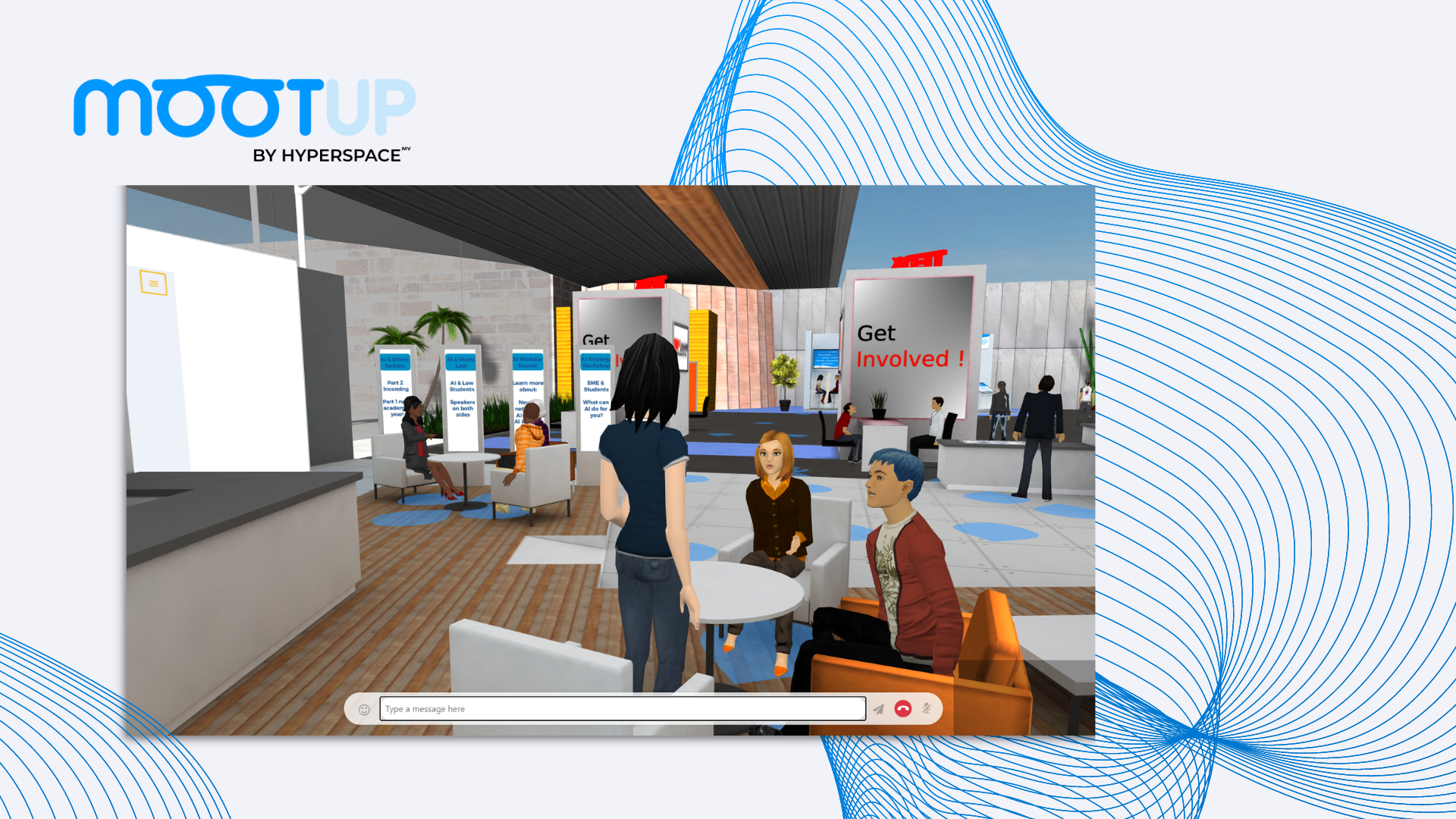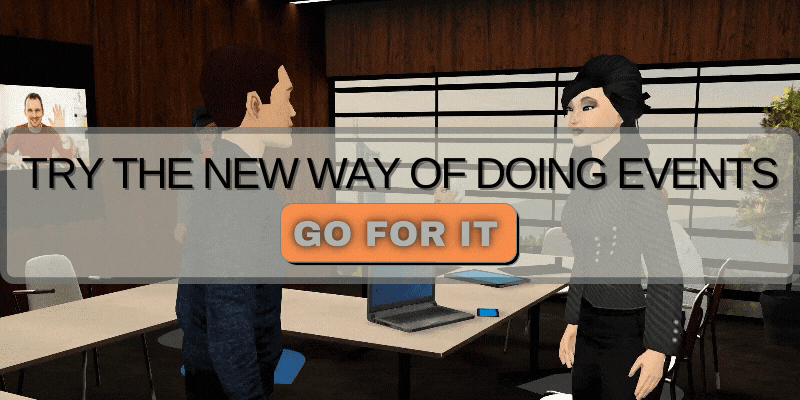Are you aiming to maximize your virtual conference experience? For a successful virtual conference, adequate preparation is the key. From pre-event planning to post-event follow-up, here are some essential virtual conference tips for ensuring a smooth and enjoyable virtual conference.
Get ready to maximize engagement with attendees by taking advantage of these top virtual conference tips.
Table of Contents:
- Pre-Event Preparation.
- During the Event.
- Post-Event Follow-Up.
- Best Practices for Virtual Conferences.
- FAQs in Relation to Virtual Conference Tips.
- How can I make virtual conferences better?
- How do I make my online conferences engaging?
- Plan ahead:
- Choose an appropriate platform:
- Create engaging content:
- Promote & market effectively:
- Set clear objectives & goals:
- 6 . Utilize technology wisely:
- 7 . Have contingency plans ready:
- 8 . Encourage networking:
- 9 . Monitor & measure success:
- Follow up after the event:
- Conclusion.
Pre-Event Preparation
Event industry professionals must take the time to prepare properly for a virtual conference. This includes setting up the platform, creating an engaging agenda, developing a compelling brand identity, promoting the event, and testing and troubleshooting.
Choose a program that satisfies your requirements and is usable with everyone’s hardware for setting up your virtual meeting system. Consider features such as breakout rooms for smaller group discussions or live streaming capabilities if you plan on broadcasting events online. Beforehand, ensure to run a complete trial, so there are no unexpected issues during the event.
Creating an engaging agenda is key to ensuring attendees stay engaged throughout the event. Include interactive activities such as polls or Q&A sessions where attendees can participate directly from their devices while providing enough breaks between sessions so they don’t become overwhelmed by too much information.
Another relevant virtual conference tip is developing a compelling brand identity that will help differentiate your virtual conference from others and create recognition among potential attendees before they even arrive. Utilize branding elements such as logos or color schemes across your promotional materials to ensure consistency throughout each touchpoint along the customer journey leading up to registration day.

Promoting your event is essential in order to get people excited about attending. Reach out through email campaigns or social media platforms like Twitter or Instagram using hashtags relevant to your industry and target audience demographic to maximize reach potential and draw more attention towards registering for the upcoming event.
Finally, ensure you’re prepared for any technical difficulties during the conference by thoroughly testing beforehand. Anticipate any potential issues that could arise and be ready to act swiftly with backup plans.
Have backup plans ready just in case something happens unexpectedly, whether switching over to another platform quickly or utilizing video conferencing services instead of webinars if needed – be prepared ahead of time. Hence, everything runs smoothly on launch day.
Pre-event preparation is key to a successful virtual conference. Investing in the pre-event preparations and event execution will ensure a successful virtual conference with an enjoyable experience for attendees. Now let’s look at how to manage the event during its execution.
Key Takeaway: Prepare for a successful virtual conference by selecting the right platform, creating an engaging agenda and branding identity, promoting it widely through social media channels, and testing thoroughly in advance. Put all your ducks in a row to ensure everything goes off without a hitch on launch day.
During the Event
As an event industry professional, an essential virtual conference tips is ensuring that all voices are respected and acknowledged by actively facilitating conversations is essential. This means actively moderating conversations to keep discussions on track and ensuring that everyone has a chance to contribute.
For successful moderation, it is essential to assign moderators who can ensure that conversations remain focused and on track while also introducing topics, summarizing key points from the discussion, and addressing any questions or concerns. At the start of each session, you should provide guidance on how to engage in order to ensure a fruitful exchange.
Keeping Attendees Engaged and Connected:
Virtual events often lack the same energy as in-person events due to the distance between participants. Therefore, it’s important for event professionals to create opportunities for interaction between attendees during virtual conferences.
This could include live polls or Q&A sessions where people can engage with one another directly or through chat functions like Slack or Zoom’s chat feature. It’s also helpful to have dedicated “breakout rooms” where small groups can discuss topics more intimately without feeling overwhelmed by larger group conversations.
As an advanced-level event professional with a high IQ, it is essential to take advantage of the technology available and maximize its potential. Utilizing interactive elements such as virtual photo booths can liven up online events, allowing guests to engage in fun activities while connecting with other attendees over video conference calls or social media platforms like Instagram Live streams are all must-to-be-followed virtual conference tips.
AR applications are also becoming increasingly popular, enabling people worldwide to experience an event together virtually by using their smartphones or tablets as portals into shared 3D spaces created with Unity3D and Unreal Engine 4 software platforms.
Handling Technical Difficulties Quickly and Efficiently: While hosting a virtual conference, technical difficulties are inevitable, so having a plan ahead of time is essential. Start by identifying potential issues before your event begins – common problems include audio/video lag, connection drops, hardware malfunctions, etc.
Then develop strategies for resolving these issues quickly if/when they arise during your event – this may involve setting up back – up systems such as extra microphones/cameras, providing technical support staff on standby throughout your conference, etc. Doing so will help minimize disruptions during your virtual gathering.
Collecting feedback from attendees after your virtual conference is just as important as preparing beforehand. Make sure there are multiple ways guests can submit feedback, including surveys via email or SMS messages and links posted on social media sites and forums related to your topic area(s) – this will help ensure maximum participation rates and response times when collecting data post-event.
Additionally, consider offering incentives (discounts off future services/products, etc.) for those who complete surveys – this helps increase engagement levels even further.
When running a virtual or hybrid event, it is important to stay organized and plan ahead to ensure the attendees have an enjoyable experience. Post-event follow-up should also be taken into consideration, as this will help maximize the reach of your event content and foster relationships with participants.
Key Takeaway: As an advanced-level professional with a high IQ, I need to be prepared for any technical difficulties that may arise during my virtual conference and have strategies to resolve them quickly. Additionally, it’s essential to create opportunities for attendees to engage with one another while providing incentives like discounts on future services or products in order to maximize participation levels when collecting feedback after the event.
Post-Event Follow Up
Following a virtual gathering, one of the most imperative virtual conference tips is to conduct subsequent activities for proper closure. Data from the virtual conference should be scrutinized to determine its effectiveness and where enhancements could be made for upcoming events.
Event industry professionals should use this information to measure their performance and identify areas of improvement. Sending thank you messages to attendees shows appreciation for their participation and reinforces your brand identity. Additionally, sharing resources with participants allows them to continue learning after the event has ended.
Finally, leveraging social media to extend the reach of event content ensures that more people are exposed to your message and increases engagement with potential customers or partners in the future. Utilizing relevant hashtags on social media can help boost the visibility of your event, so make sure to incorporate them when promoting it.
Post-Event Follow Up is essential for gathering feedback, thanking attendees, and extending the reach of your event. By following the best practices of virtual conference tips, you can ensure that your events are engaging and memorable experiences.
“Learn how to maximize the success of your virtual conference with our post-event follow-up tips. Analyze data, thank attendees, share resources & leverage social media for maximum reach.” #virtualconferences #metaverseeventsClick to Tweet
Best Practices for Virtual Conferences
When arranging a virtual gathering, it is imperative to determine explicit objectives and expectations for the occasion. To ensure that all participants are on the same page, it is important to set clear expectations for what needs to be achieved and how.
Additionally, having well-defined objectives allows organizers to measure success after the event. When selecting a platform for your virtual conference, be sure to factor in features such as video streaming and chat capabilities, security protocols, customer support options, and scalability.
It’s also important to consider scalability when selecting a platform; if you anticipate growth or an influx of attendees at any point during your event, make sure you choose one that can handle increased traffic without compromising performance or quality.
Key Takeaway: When planning a virtual conference, setting clear goals and selecting the right platform with features that meet your needs are essential. Make sure you choose one that can handle increased traffic as the event grows while delivering optimal performance and quality.
FAQs in Relation to Virtual Conference Tips
How can I make virtual conferences better?
Virtual conferences can be improved by utilizing no-code platforms to produce and host events in the metaverse. These platforms allow event industry professionals to create immersive experiences with customizable features like 3D avatars, interactive environments, virtual stages, and more.
By taking advantage of these solutions, organizers can provide participants with a remarkable, gratifying encounter. Furthermore, no-code platforms allow organizations of all sizes to launch virtual or hybrid events quickly without extensive technical knowledge or resources.
How do I make my online conferences engaging?
Creating engaging online conferences requires thoughtful planning and implementation of a variety of interactive elements. Making use of video conferencing platforms, streaming technologies, VR opportunities, and game-like elements can help keep people captivated throughout the conference. It can also make your engagement simplified – Your attendees can join your immersive 3D experience on any device from smartphones to VR headsets in a single click.
Mix in gamification, 1,000+ gestures and a whole slew of social interactions and you’ve got instant engagement built right in. Additionally, incorporating audience participation activities such as polls or Q&A sessions will allow further interaction between speakers and participants. Finally, incentives such as rewards for completing tasks or attending multiple events can effectively increase engagement levels during your conference.
1. Plan ahead:
Take the time to properly plan your event and create a detailed timeline of activities leading up to it.
2. Choose an appropriate platform:
Select a virtual platform that will meet the needs of your attendees, such as Zoom or Microsoft Teams for video conferencing or webinar platforms like GoToWebinar for larger events with more features.
3. Create engaging content:
Ensure you have interesting topics and interactive elements to keep your audience engaged throughout the event.
4. Promote & market effectively:
Reach out to potential attendees through email campaigns, social media posts, advertisements, etc., before the event, so they know what is happening and when it’s happening.
5. Set clear objectives & goals:
Establish specific goals before starting any planning process – this helps ensure that all efforts are focused on achieving them during the course of your virtual event.
6 . Utilize technology wisely:
Use technology wisely by selecting tools that provide maximum engagement opportunities while keeping technical issues at bay (i.e., live polls/quizzes).
7 . Have contingency plans ready:
Be prepared for unexpected technical difficulties by having backup plans if something goes wrong.
8 . Encourage networking:
Make sure you create a virtual space where attendees can connect with each other and network effectively during the event.
9 . Monitor & measure success:
Track the performance of your virtual event in real time by using analytics tools to gain valuable insights into how it is performing.
10. Follow up after the event:
Send out surveys or questionnaires afterward to gather feedback from participants; this is one of the most important virtual conference tips and will help you improve for future events.
Conclusion
In conclusion, virtual conferences are a great way to reach an audience from all over the world. Following these virtual conference tips and best practices ensures your virtual conferences run smoothly and create a memorable experience for all involved. It is essential to take into account that each virtual gathering will necessitate its own particular necessities.
However, with the proper groundwork and consideration for subtleties, you can guarantee your online occasions go off without a hitch. With the right tools, anyone can “Futureproof” your Metaverse event tech stack with this browser-based platform that enables access on all smartphones, tablets, laptops, and VR/AR headsets, without requiring downloads or software installation and create a memorable experience at their next virtual conference.
Take your virtual and hybrid events to the next level with MootUp, a no-code platform designed for creating engaging experiences in the metaverse. Unlock powerful features that will help you produce successful conferences and maximize engagement from attendees.

